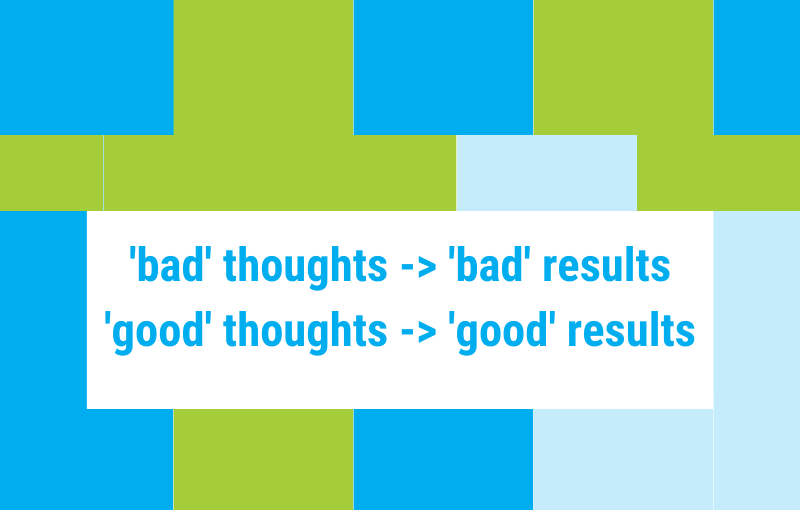Our thoughts determine what we do or don’t do.
Our thoughts and beliefs, the stories we tell ourselves about who we are and what we can or cannot control, what we can or cannot do, determine how we feel, and our feelings drive our actions – the things we do or don’t do.
It really is this easy – whatever our challenge is, our thoughts determine how we approach and manage it:
-
- ‘Bad’ (negative, powerless, weak, self-limiting, doubtful, etc.) thoughts create ‘bad’ feelings.
Example:
If I think, ‘This is such a mess, I can’t clear it up.’ I feel hopeless.
-
- ‘Bad’ feelings make us take ‘bad’ actions.
If I feel hopeless, I take no action at all or I start and then give up quickly.
-
- ‘Bad’ actions create ‘bad’ results/experiences in our life.
Procrastinating or giving up leaves the mess as it is. I create evidence for my original thought (‘I can’t clear it up’).
If we want to change our results, we need to act differently.
And our actions, behaviours, habits will only change if we think and feel differently about our challenges:
-
- We need to intentionally choose ‘good’ (positive, powerful, determined, confident, trustful, etc.) thoughts to create ‘good’ feelings.
Example:
I choose the thought: ‘Of course, I can do this. I just take one step at a time.’
Which makes me feel capable. Or confident.
-
- Feeling ‘good’ enables us to take ‘good’ actions.
If I feel capable, I start to get active and take the first step. And then the next.
-
- And our ‘good’ actions then create new ‘good’ results.
Little by little, the mess gets cleared up. I prove to myself the truth of my thought (‘I can do this.’)
Of course, in real life, it’s not always that easy.
Changing our thoughts, feelings, and consequently our actions/behaviours is often not easy because we have a human brain.
We struggle – again and again – to get active and change and improve the things that are within our power – because our brain, at least one part of it, doesn’t want us to change what we do or don’t do. It also doesn’t want us to change our thinking.
We need to understand our human brain and how it works if we want to manage it successfully.
We’ll discuss in the coming articles of this series how we can learn to manage our brain – and, as a consequence, our actions and habits – in a powerful way.

